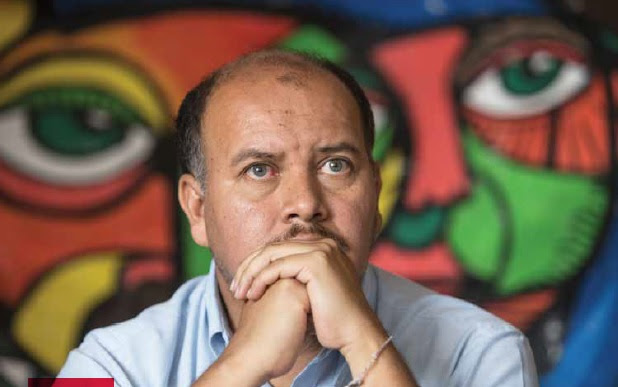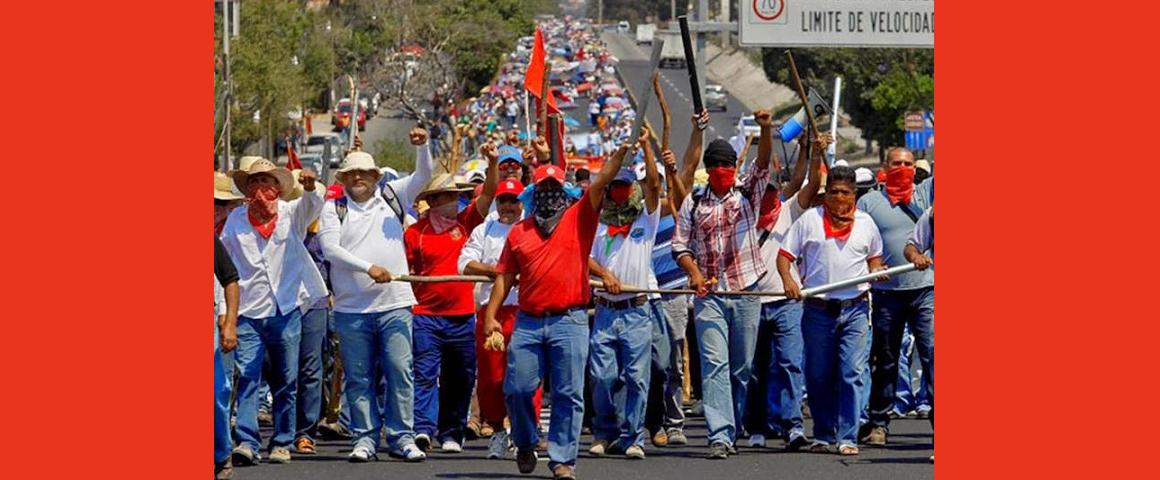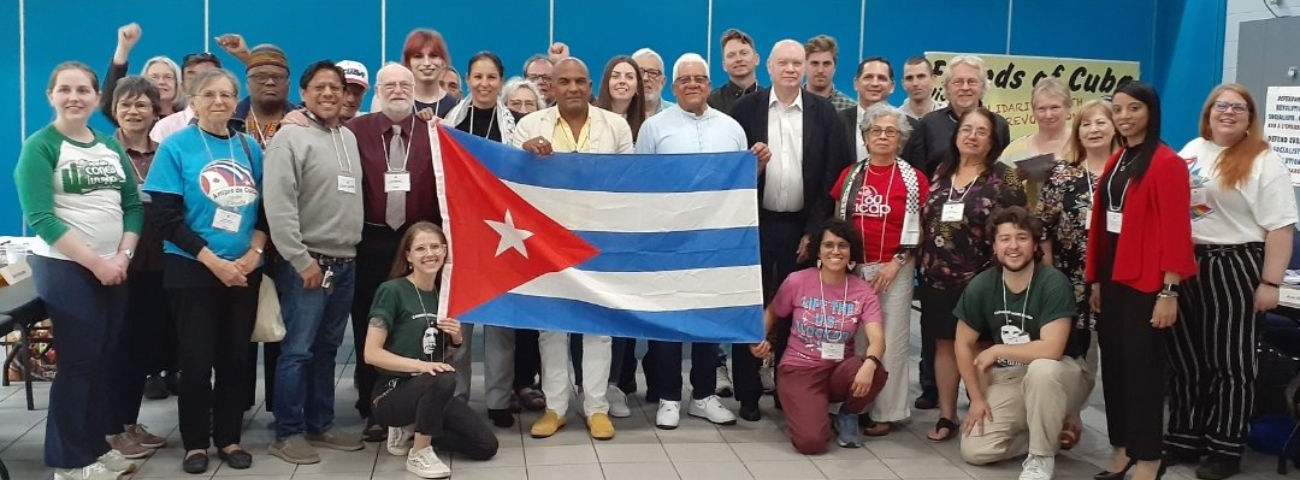Since assuming office in December, the new social democratic government of Andres Manuel Lopez Obrador has demonstrated that it differs little from previous right-wing governments and is committed to the neoliberal capitalist model that has led to mass poverty, said Pavel Blanco, leader of the Communist Party of Mexico (PCM).
Obrador, posing as left-wing to attract votes and support, is providing a breathing space for the capitalist class in Mexico, where there is widespread social unrest and disenchantment with the status quo, said Blanco. “Obrador has launched an austerity program, laying off thousands of public sector workers and cutting programs. Using the pretext of clamping down on corruption, he is privatizing the country’s system of national publicly owned daycares as well as cutting budgets for healthcare, education, culture and scientific research.”
Obrador has declared himself a supporter of the free market and signed the revised NAFTA 2.0 agreement last year with the US and Canada that continues to hurt the working class in all three countries while benefiting US, Mexican and Canadian multinational corporations. The new Mexican president wants to establish two new free trade zones, where foreign corporations will not have to adhere to Mexico’s weak labour laws and workers will have no rights.
The Mexican Communist leader is critical of Obrador’s plan to provide 3 million scholarships for job training to unemployed young people in a program called ‘Youth Building the Future.’ Those receiving the scholarship will be placed in companies and public agencies and the government will pay their salaries for 2 years. At $190 US per month, those salaries are less than what regular employees are paid and a gift to business. In a country with at least 20% unemployment, Blanco says this program will lead to abuses and exploitation. “These young workers will have no labour rights or benefits and can be forced to work 9-12 hours per day.”

“The new government has raised the daily minimum wage from 88,36 pesos, around $4.40 US, to 102 pesos or $5.10 US. But this is not enough to cover expenses and wages continue to remain low,” said Blanco. “Purchasing power from 1970 to 2019 fell 70%, resulting in mass poverty.” According to Mexican government figures, 61.1 million people out of a population of 120 million have incomes below the official poverty line.
On the labour side, Obrador’s government has introduced legislation that will allow more than one union in a workplace. This will divide unions and allow the entry of corrupt unions from the AFL-CIO in the United States. Blanco says that people close to Lopez Obrador are creating a new trade union federation to control the country’s labour movement.
Blanco said that Obrador’s economic program will do nothing to eliminate poverty and destitution in the country. “Obrador says the main thing holding Mexico back is corruption and dishonesty, but the main problem is exploitation.”
He is also critical of the National Guard, the new paramilitary force that Obrador set up to fight widespread crime and violence. “The purpose of the new force is to control and repress dissident, not to fight crime,” said the Communist leader. “You see that by the type of equipment they are given, such as helmets and shields.” Obrador has said that he will no longer recognize social protests, just individual demands.
At the request of US President Donald Trump, the Obrador government is impeding, detaining and sending immigrants back to Central America. In the past, Mexican governments always allowed poor Central American immigrants to pass through the country, said Blanco.
Blanco notes that Obrador does not come from a left-wing background. “While his grandfather used to be a Communist Party member, Obrador belonged to the right-wing Institutional Revolutionary Party (PRI) before he began his political career with the center-left Party of the Democratic Revolution (PRD) in 2000.” That year, the PCM formed a brief alliance with Obrador, along with other left parties and groups, when he ran for governor of Mexico City around a minimum reform program. In 2012, Obrador broke with the PRD and formed the National Regeneration Movement (MORENA) under which he was elected president.
The PCM is currently trying to get registered so that it can enter the electoral arena and provide a left-wing alternative to the working class, said Blanco, who believes the party has support among the population. It has been an uphill struggle because the country has the most restrictive electoral laws in the world, designed to maintain the political monopoly of the existing parties. “The National Electoral Institute (INE) is demanding a list of 3,000 members in each of the 300 electoral districts and the signatures of one percent of the voters list, impossible demands for small parties like the PCM to meet,” he remarked. “The demand that the party provide a membership list to INE is unacceptable because it would put member’s lives at risk. Over the last few years five leaders of the PCM have been assassinated and one disappeared for their activism.”
The electoral law also allows INE to intervene and remove elected leaders during internal disputes and impose new ones.
The last time the PCM ran candidates was in 1979 when it won 5.4% of the vote and elected 9 deputies to the National Congress, becoming the third largest party in the country. In 1981, members voted to dissolve the PCM and form the United Socialist Party of Mexico (PSUM) with other left forces. In 1987, the PSUM changed its name to the Mexican Socialist Party (PMS). In 1988, the PMS dissolved and formed the Democratic Revolution Party (PRD) with dissident members from the PRI. The PRD, which in the last election formed an alliance with the right-wing National Action Party, inherited the PCM’s electoral registration and property. Blanco and other former party members re-founded the PCM in 1994.
The Party is forming coalitions with unions and other organizations to press for political reform such as the one that led to the old PCM’s electoral registration in 1978. To register, the former PRI government only asked that the party submit party publications for the last 5 years and a Central Committee membership list.
Obrador and MORENA Senate President Marti Batres — a former Communist — have said they are open to discussing political reform. Says Blanco, “We think the working class should decide who it wants to elect, not the state.”




